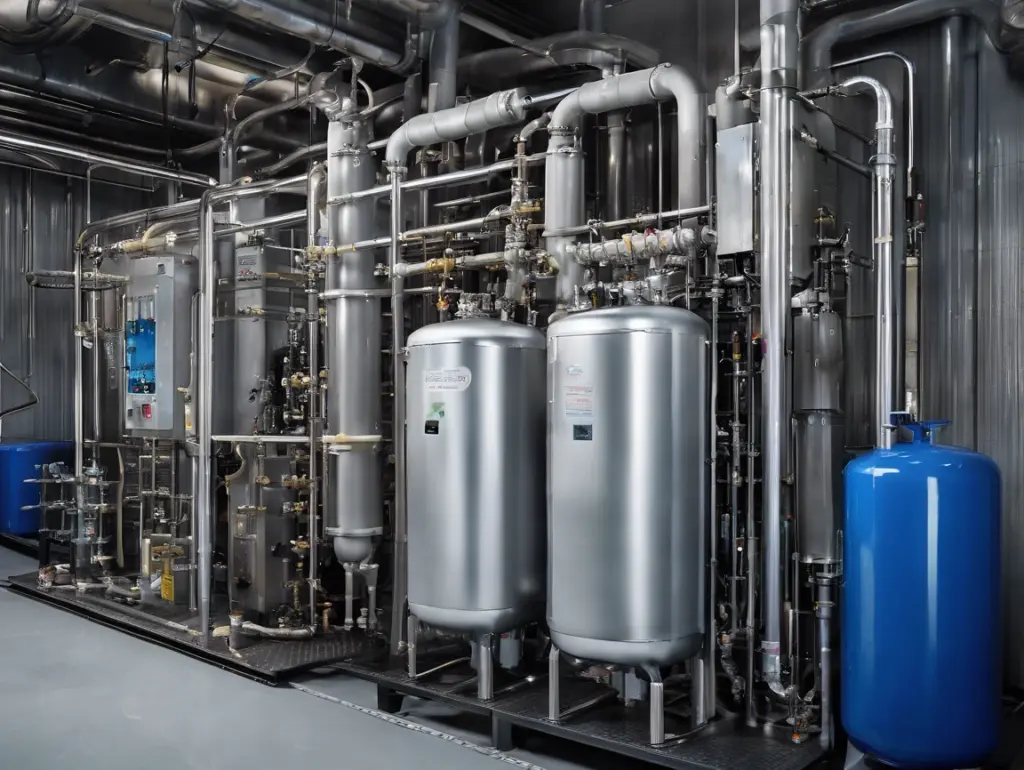Introduction
Ozone (O₃) is a powerful oxidant used to disinfect and purify water. An ozone generators (also called an ozonator or ozone machine) produces ozone gas by passing air or oxygen through a high-voltage discharge. The ozone is injected into the water, where it reacts with contaminants and kills bacteria, viruses, and other pathogens (
Compared to traditional chlorine, ozone works faster, has stronger germicidal power (KnowYourH2O: Ozonation Basics), and leaves no harmful residues (
For industrial clients, ozone generators (sometimes called water ozonators or ozonizer machines) offer a chemical-free way to treat drinking water, wastewater, and process water on-site.

Working Principle
This ozone oxidation process requires no added chemicals, making it fast, efficient, and eco-friendly. In other words, ozone acts as a strong “cleaning agent” in water, breaking down impurities and then reverting to harmless oxygen.
Application Scenarios
Food & Beverage Industry
Ozone disinfection plays an important role in food safety as it can kill bacteria, viruses, and molds in equipment and washing water (AQUAANALYTIC). During the cleaning process of agricultural products, ozonated water can remove pesticides and pathogens without leaving chemical residues, thus improving product quality.
Drinking Water Treatment
Use an ozone generator to purify drinking water and ensure the safety and cleanliness of the water quality. It can kill a variety of pathogens, improve the taste and odor, and does not require the addition of any chemicals (Eltech Ozone). This makes it an environmentally friendly choice for drinking water purification.。
Industrial Wastewater Treatment
Ozone generators can effectively disinfect and oxidize pollutants in industrial wastewater (water and wastewater). Compared with chlorine – based treatment, this process can also reduce the generation of chemical by – products, which complies with environmental protection regulations.。
Agricultural Irrigation
Ozone is more effective than chlorine in eliminating bacteria, viruses, and fungi in irrigation water and quickly decomposes into oxygen without leaving any harmful residues (absolute ozone). Treating irrigation water with ozone can remove organic matter and pesticide residues, making the water cleaner and beneficial to plant growth.。
Product Selection Suggestions
-
- Capacity and Construction
Choose an ozone generator capacity (e.g., grams/hour) that matches the required water flow and contamination level. Opt for durable stainless-steel enclosures and reliable electrode materials for corrosion resistance and long service life. Industrial systems may use air-cooling or water-cooling depending on ambient conditions and continuous operation needs.
- Capacity and Construction
-
- Industrial-Grade Design
For factory wastewater and high-flow applications, select an industrial-grade ozone generator for water treatment. These units typically deliver higher ozone output and robust durability to handle demanding conditions.
- Industrial-Grade Design
-
- Automation and Safety
Opt for ozone generators with automatic concentration control and monitoring features, which adjust ozone dosing in real time. Include an ozone destruct unit or activated carbon filter to decompose excess ozone, ensuring that only safe levels escape.
- Automation and Safety
-
- Reputation and support
Choose an experienced industrial ozone generator manufacturer and verify its performance record in the water treatment field (HPIPro). High – quality suppliers provide strong after – sales support and training to ensure the reliable operation of the system.。
- Reputation and support
Conclusion
Ozone water treatment offers industrial customers an eco-friendly and efficient solution due to its powerful oxidizing and disinfecting properties. Ozone quickly removes microbes and organic pollutants from water and reverts to oxygen after reacting, leaving no harmful residues (). Industrial ozone generators are favored in sectors like food processing, wastewater treatment, and agricultural irrigation for their high efficiency, safety, and environmental benefits. As water quality and environmental standards rise, the adoption of ozone generators in industrial water treatment is becoming an important trend in modern water management.